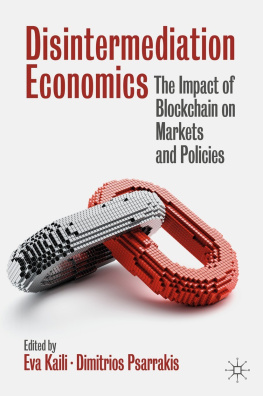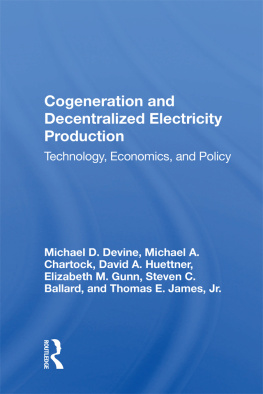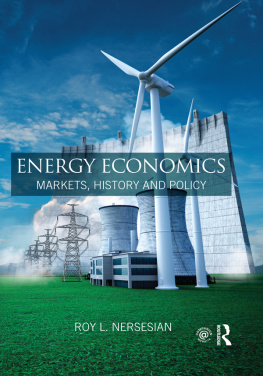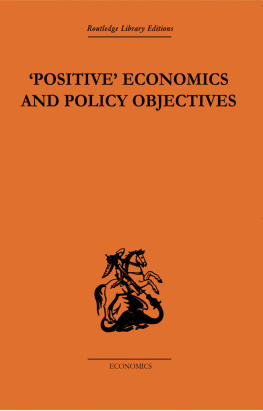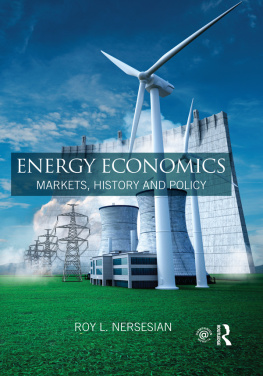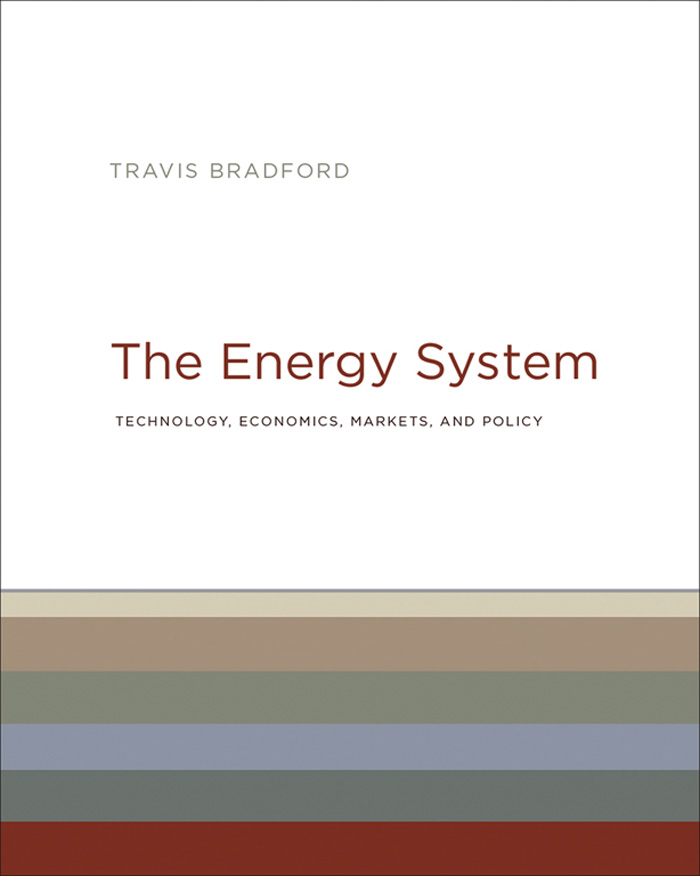Table of Contents
List of figures
- Chapter I
- Chapter 1
- Chapter 2
- Chapter 3
- Chapter II
- Chapter 4
- Chapter 5
- Chapter 6
- Chapter 7
- Chapter 8
- Chapter 9
- Chapter 10
- Chapter 11
- Chapter 12
- Chapter III
- Chapter 13
- Chapter 14
- Chapter 15
- Chapter 16
- Chapter IV
- Chapter 17
- Chapter 18
- Chapter V
- Chapter 19
- Chapter 20
- Postscript
Guide
The Energy System
The Energy System
Technology, Economics, Markets, and Policy
Travis Bradford
The MIT Press
Cambridge, Massachusetts
London, England
2018 Massachusetts Institute of Technology
All rights reserved. No part of this book may be reproduced in any form by any electronic or mechanical means (including photocopying, recording, or information storage and retrieval) without permission in writing from the publisher.
This book was set in Times LT Std by Toppan Best-set Premedia Limited.
Library of Congress Cataloging-in-Publication Data
Names: Bradford, Travis, author.
Title: The energy system : technology, economics, markets, and policy / Travis Bradford.
Description: Cambridge, MA : The MIT Press, [2018] | Includes bibliographical references and index.
Identifiers: LCCN 2017034405 | ISBN 9780262037525 (hardcover : alk. paper)
Subjects: LCSH: Power resources. | Energy policy. | Energy industries.
Classification: LCC TJ163.2 .B695 2018 | DDC 333.79--dc23 LC record available at https://lccn.loc.gov/2017034405
ISBN: 978-0-262-03752-5
10987654321
d_r0
To my mentors and teachers who lent me their shoulders to stand upon and compelled me to see further
and
To my students, who renew my hope every day
Contents
-->
-->
-->
-->
-->
-->
-->
-->
-->
-->
-->
-->
-->
-->
-->
-->
-->
-->
-->
-->
-->
-->
-->
-->
-->
-->
-->
-->
-->
-->
-->
-->
-->
-->
-->
-->
-->
-->
-->
-->
-->
-->
-->
-->
-->
-->
-->
-->
-->
-->
-->
-->
-->
-->
-->
-->
-->
-->
-->
-->
-->
-->
-->
-->
-->
-->
-->
-->
-->
-->
-->
-->
-->
-->
-->
-->
-->
-->
-->
-->
-->
-->
-->
-->
-->
-->
-->
-->
-->
-->
-->
-->
-->
-->
-->
-->
-->
-->
-->
-->
-->
-->
-->
-->
-->
-->
-->
-->
-->
-->
-->
-->
-->
-->
-->
-->
-->
-->
-->
-->
-->
-->
-->
-->
-->
-->
-->
-->
-->
-->
-->
-->
-->
-->
-->
-->
-->
-->
-->
-->
-->
-->
-->
-->
-->
-->
-->
-->
-->
-->
-->
-->
-->
-->
-->
-->
-->
-->
-->
-->
-->
-->
-->
-->
-->
-->
-->
-->
-->
-->
-->
-->
-->
-->
-->
-->
-->
-->
-->
-->
-->
-->
-->
-->
-->
-->
-->
-->
-->
-->
-->
-->
-->
-->
-->
-->
-->
-->
-->
-->
-->
-->
-->
-->
-->
-->
-->
-->
-->
-->
-->
-->
-->
-->
-->
-->
-->
-->
-->
-->
-->
-->
-->
-->
-->
-->
-->
-->
-->
-->
-->
-->
-->
-->
-->
-->
-->
-->
-->
-->
-->
-->
-->
-->
-->
-->
-->
-->
-->
-->
-->
-->
-->
-->
-->
-->
-->
-->
-->
-->
-->
-->
-->
-->
-->
-->
-->
-->
-->
-->
-->
-->
-->
-->
-->
-->
-->
-->
-->
-->
-->
-->
-->
-->
-->
-->
-->
-->
-->
-->
-->
-->
-->
-->
-->
-->
-->
-->
-->
-->
-->
-->
-->
-->
-->
-->
-->
-->
-->
-->
-->
-->
-->
-->
-->
-->
-->
-->
-->
-->
-->
-->
-->
-->
-->
-->
-->
-->
-->
-->
-->
-->
-->
-->
-->
-->
-->
-->
-->
-->
-->
-->
-->
-->
-->
-->
-->
-->
-->
-->
-->
-->
-->
-->
-->
-->
-->
-->
-->
-->
-->
Preface
The important thing is to provide the analytical machinery that will enable the reader to arrive at, and defend, his own opinion, and, what is hardly less important, to understand the position of those with whom he most disagrees.
More than ever before, understanding how the modern world functions and the threats it faces requires an understanding of our energy system.
The world we live in is technologically and economically amazing. Our past and current energy choices have enabled many incredible opportunities and benefits for society; produced incalculable wealth and welfare for everyone on the planet (though with a wide disparity among individuals); enabled massive global population expansion; absorbed vast amounts of the planet's resources and sinks; and created profound security, economic, and environmental dependencies and risks. Energy is the very bedrock upon which all modern nations, economies, and societies have been built.
Despite the core role of energy systems in modern society, studying them has not always seemed so urgent. At times in recent history, the motivation to examine our energy system has been very limited, as the energy industry has been largely reliable in its ability to deliver increasing amounts of these vital inputs to global economic growth. For the last few hundred years of the fossil fuel era, prices were typically low and supplies were mostly abundant for those who could afford to pay, with the exception of brief periods of dislocation around times of war or economic crisis. Energy did not constrain us. It defined our very concept of growth and opportunity. We thought about it only to learn how to deliver more, and in doing so be richer and more powerful.


